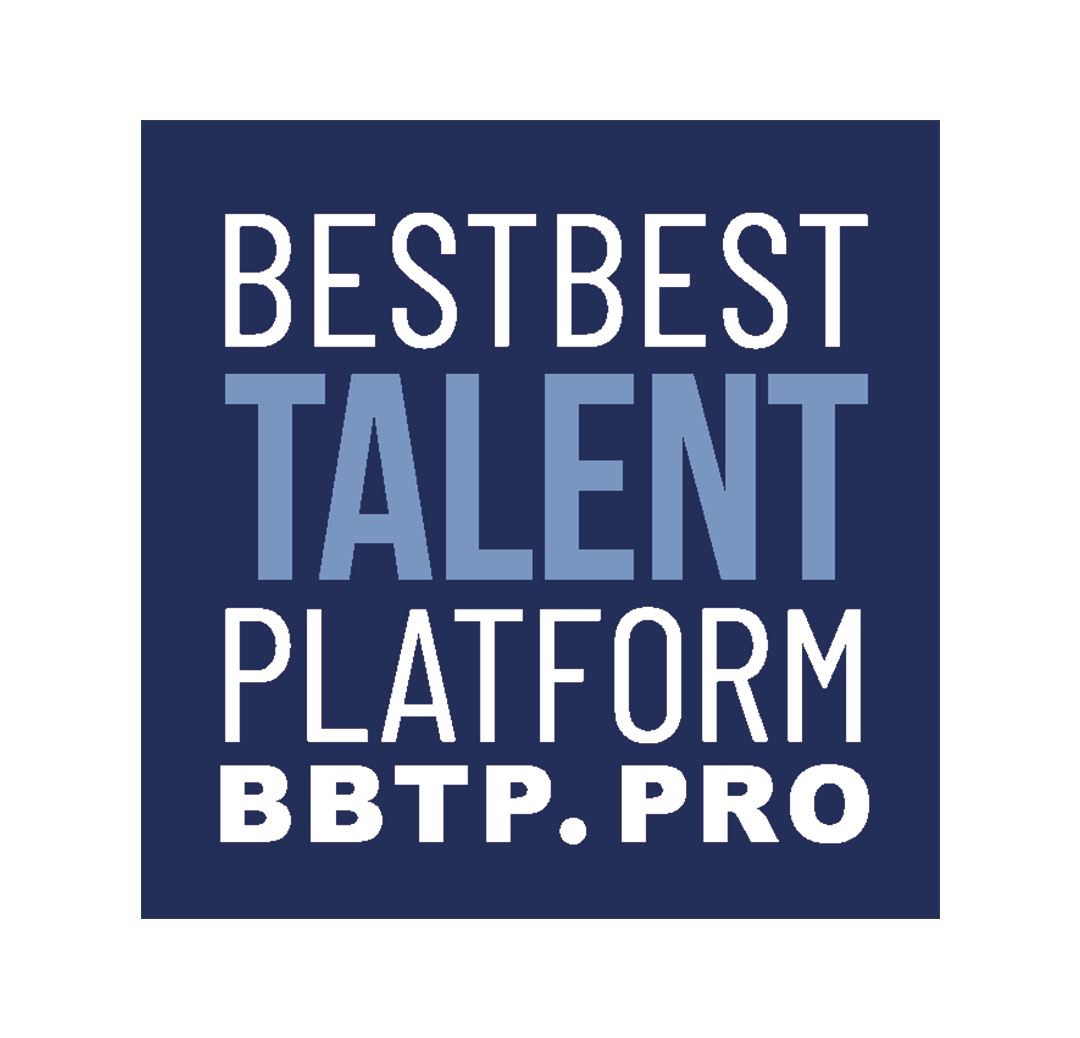Is better than you wanted, actually better?
Imagine you are the CEO for a company of 15 people. You and your board have been handling Human Resources on your own since starting your business a few years ago, but the company is growing. Now, you are in need of a part-time HR Manager who can carry out incoming HR duties and set up sustainable practices for a future of growth. When applications start to come in, one candidate stands out: extensive HR management experience, business savvy, leadership skills — they have everything you want, and more! You should feel excited about getting more than what you want, but a sinking feeling creeps in.
You find yourself wondering if the candidate is too good for the job at hand.
Companies often face the challenge of finding the right talent to fill key positions. Yet, when an overqualified candidate comes along, they hesitate to hire. This hesitation is normal. It comes from several risks that have been identified by hiring managers and shared widely among recruiters and talent alike.
Risk #1 Flight
Companies may worry that an overqualified worker will quickly become dissatisfied with the role and seek higher-level opportunities elsewhere. Concerns about retention and the investment of time and resources in training and integration can lead to apprehension about hiring someone who may be perceived as "too good" for the position.
Risk #2 Low motivation
Some organizations worry that an overqualified candidate may feel unfulfilled or underutilized in the role, leading to reduced motivation and engagement. Companies may fear that such individuals will stay in their role (as opposed to fleeing) but become disinterested or disengaged, negatively impacting team morale and overall productivity.
Risk #3 Cultural tension
Employers may question whether an overqualified worker will mesh well with the existing team and company culture. There might be concerns about potential friction, resistance from colleagues, or difficulties in accepting direction from someone deemed excessively experienced for the role.
Risk #4 High cost
Hiring an overqualified candidate may raise concerns about salary expectations. Companies may fear that the candidate will demand a higher compensation package commensurate with their experience, potentially straining the budget allocated for the open position.
Although the four risks outlined above exist, they are often exaggerated and given more weight than the benefits of hiring someone overqualified. Before giving way to a hiring hesitation regarding an overqualified candidate, it is crucial to assess which risks actually apply to your situation, then reduce them.
Identifying and reducing the true risks of overqualification
Reduce flight risk
When hiring a freelancer for a short-term or interim assignment, the risk of them leaving is low. Freelancers rely on their reputation to keep a flow of incoming jobs and have high motivation to complete the agreed task. In other words, planned flights leave little room for uncertainty and give even overqualified candidates the motivation to reach the end of their contract on good terms.
For long-term jobs, companies can reduce the risk of flight from overqualified professionals by clearly communicating the role's objectives, challenges, and growth opportunities. Emphasize how the candidate's skills and expertise can contribute to the company's success and co-create short and long-term goals to measure that success. This two-way communication ensures alignment and reduces the risk of talent feeling unfulfilled and leaving to explore another opportunity.
Keep motivation high
Even if an assignment is clearly communicated, there is always a risk that motivation will dwindle as time goes on. In order to keep overqualified workers engaged, companies can demonstrate a commitment to their professional development. Highlight the potential for growth within the organization throughout the assignment, whether it be through additional responsibilities, access to new projects, or avenues for leadership development.
However, companies should not stress too much about finding additional opportunities for an overqualified candidate. Remember that the candidate is overqualified for a reason — they have a track record of meeting goals, following through on promises, and impressing those around them. People like this are fully capable of determining whether or not a job will be motivating for them before they accept an assignment.
Create a positive culture
During the hiring process, companies should evaluate the candidate's ability to adapt to the company's culture and work effectively within the existing team. Assess their willingness to collaborate, their openness to learning from others, and their ability to bring a positive influence to the work environment. In other words, if the overqualified candidate is humble, then they should be able to fit in at your company.
In addition to fitting in, consider the cultural add of the overqualified professional. Does the candidate bring a specific quality that might unlock new inspiration within the existing team? Might their leadership experience provide additional opportunities for mentorship? Be open to the ways in which the candidate can bring additional value to the business and those who work with them.
Be transparent about compensation
The best way to reduce the risk of going over budget is to be transparent about the compensation package from the beginning. By putting the salary range on the job posting, companies will weed out applicants looking for more. People have many reasons for choosing to work in a position and you can consider highlighting non-monetary benefits that the role provides. At the end of the day, if a candidate agrees to the payment terms, then you should trust that they find the assignment appealing enough for the money earned.
When the benefits outweigh the risks
While hiring an overqualified professional may seem risky at first, it can be a strategic move that brings significant benefits to your company. In fact, more often than not, the true risks can be reduced so low that the benefits far outweigh them. Below are four ways an overqualified worker can positively impact your organization.
Benefit #1 Deep expertise and experience
C-level managers are tasked with leading projects, teams, or departments. By bringing in an overqualified professional into a C-level position, you gain access to their extensive expertise and experience. Their deep understanding of the industry, combined with their knowledge of best practices and proven strategies, can help accelerate the achievement of your company's objectives.
Overqualified workers possess a wealth of knowledge accumulated over their careers, allowing them to make informed decisions and quickly identify opportunities and potential risks. Their ability to analyze complex situations and provide insightful solutions is a valuable asset during times of change or growth.
Benefit #2 Adaptability and flexibility
Stepping into a leadership position often requires adapting to unfamiliar environments, handling challenging situations, and driving change. Overqualified workers are well-equipped to navigate these circumstances due to their adaptability and flexibility. Their experience in various roles and organizations gives them a broader perspective and the ability to quickly understand the nuances of your company's unique challenges.
These individuals are accustomed to working with diverse teams, managing different work cultures, and assimilating into new corporate structures. Their adaptability enables them to hit the ground running, minimizing the time it takes to integrate into your company and deliver tangible results.
Benefit #3 Mentorship and knowledge transfer
C-level professionals can also serve as mentors and catalysts for knowledge transfer within your organization. An overqualified professional possesses the ability to inspire and guide employees, imparting their skills and expertise to the existing workforce. This transfer of knowledge enhances the capabilities of your employees and strengthens the overall talent pool.
Additionally, overqualified workers bring fresh perspectives and innovative ideas that can challenge the status quo. Their presence can foster a culture of continuous learning and improvement, encouraging team members to expand their horizons and strive for excellence.
Benefit #4 Efficient problem solving
One of the most significant advantages of utilizing overqualified workers is their ability to solve complex problems efficiently. They have honed their problem-solving skills through their vast experience and exposure to diverse business scenarios. When faced with critical challenges, they can leverage their analytical thinking, strategic mindset, and strong decision-making abilities to find effective solutions.
Overqualified professionals possess the know-how to identify underlying issues, address them proactively, and guide teams through the resolution process. Their proficiency in crisis management and risk mitigation ensures smoother transitions during times of change, minimizing disruptions and maximizing productivity.
Embracing the potential of overqualified workers can be a game-changer for your company
When seeking a solution for a leadership position — whether full or part-time, long or short-term — don't let hesitation get the best of you. Consider the untapped potential of overqualified professionals. By utilizing those who are overqualified, you open the door to a wealth of opportunities. By hiring the best of the best, you can position your company for success.

Ready to tap into the best talent around?
Best Best Talent Platform is the perfect place to fill your talent need...FAST!
Find talent now: Contact us.
Thank you for your interest in the Best Best Talent Platform blog and BBTP community. If you have any comments about this blog post, leave one below.








